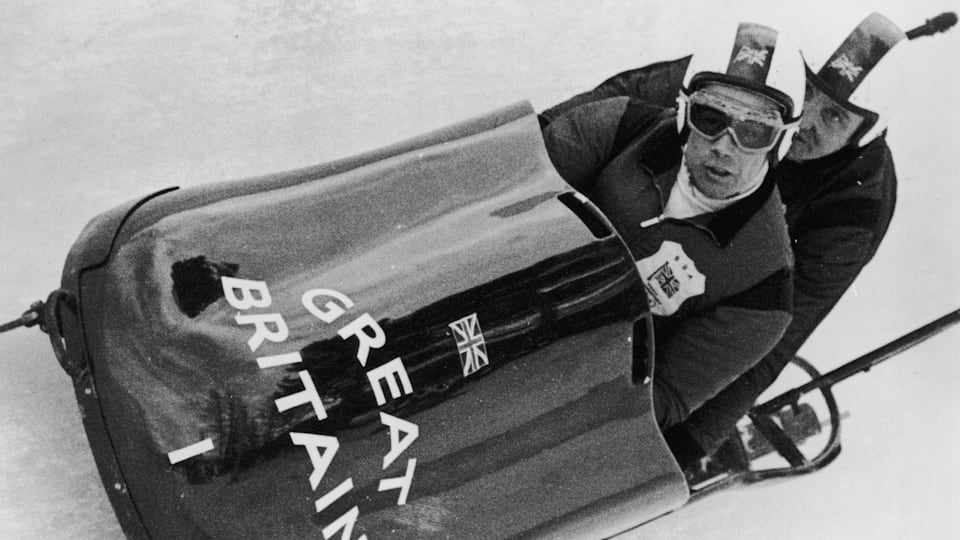
Though the sport of bobsleigh came into being when British holidaymakers created the legendary Cresta Run at the Swiss resort of St Moritz in the late 19th century, the two-man gold won by Tony Nash and Robin Dixon at Innsbruck 1964 remains Great Britain’s only Olympic title in the sport.
It was in St Moritz that Dixon, who was also an accomplished sprinter and later became Lord Glentoran, was introduced to the sport in the late 1950s, while Nash, who started out as a racing driver – much to his father’s chagrin – also made his first contact with bobsleigh in Switzerland.
In 1960 they joined Henry Taylor’s four-man British team, with Nash taking up driving duties when Taylor, who also raced a Cooper Climax in the Formula One world championship, was injured in a race.
Nash and Dixon then paired off in the two-man bob, lugging their equipment around the Alps in an old Land Rover. It wasn’t long before they began to make a name for themselves, enjoying solid progress thanks to the friendships they struck up with the great Italian bobsledders of the time, among them Eugenio Monti. In 1963 the British tandem won world bronze in Innsbruck, at the official opening of the Igls track that would host the Olympic competition the following year.
Innsbruck 1964 marked the return of bobsleigh to the Winter Games fold, the sport having been omitted from the programme at Squaw Valley 1960. The Igls track, the first to stage an Olympic bobsleigh competition on artificial ice, measures 1,506 metres long, comprises 14 turns and boasts an average grade of 9.2 percent, with the start and finish line respectively situated 1,133 metres and 138 metres above sea level.
The two-man bob competition got under way on 31 January 1964, with the Canadian pair of Vic Emery and his brakeman Peter Kirby going fastest in a time of 1:05.15 in the first run, some 0.38 seconds quicker than Nash and Dixon in second, who moved into the overall lead after finishing just behind Monti and Sergio Siorpaes in run two.
The opening run of the second day saw the Britons drop down to second, at which point they discovered a mechanical problem, with a rear axle bolt on their GBR-1 sled having sheared off. Without a spare to hand, Nash and Dixon promptly received assistance from Monti, who had no hesitation in sportingly lending them one of his bolts.
Their sled repaired, Nash and Dixon went fastest in the fourth and final run to win gold by a mere 0.12 seconds from Italy’s Sergio Zardini and Romano Bonagura, with Monti and Siorpaes collecting bronze behind them. “Nash didn’t win the gold because I gave him that bolt but because he was the fastest,” said Monti, who received the Pierre de Coubertin medal for his heartwarming show of sportsmanship. “It was more than deserved,” said Nash, who teamed up with Dixon again to win the 1965 world title. “He [Monti] was a wonderful man and a great friend. In fact, all the Italians were our friends.”
